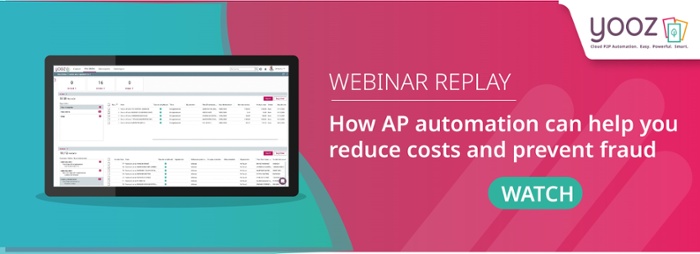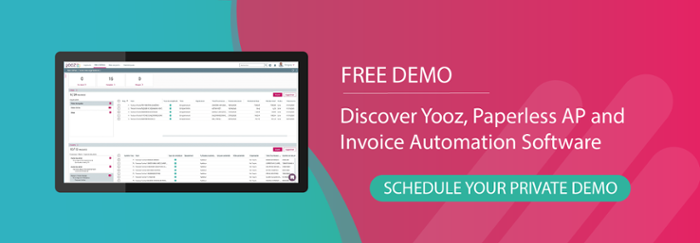As e-invoicing transforms business landscapes in countries like France, Italy and Mexico, the UK is approaching this shift with a balance of innovation and flexibility. While recognising the significant benefits of e-invoicing, the UK government is encouraging businesses to adopt it voluntarily, avoiding strict legal obligations for now. This strategy aims to support UK businesses in their digital transition without imposing undue constraints.
The following article explores the current state of e-invoicing in the UK, the government's initiatives and why businesses should consider adopting it sooner rather than later.
E-invoicing in the UK: A snapshot
Currently, e-invoicing is not mandatory for B2B or business-to-government (B2G) transactions in the UK, except for suppliers to the National Health Service (NHS). Many businesses still rely on traditional paper invoices or limited digital tools.
In October 2024, the UK government announced the launch of a public consultation to assess the feasibility and impact of e-invoicing. This consultation aims to gather feedback, identify best practices and explore how e-invoicing can modernise tax and business processes.
It would also be a step towards improving transparency and boosting efficiency. This initiative, while exploratory, reflects the UK’s commitment to digitalising business processes and aligning with global e-invoicing trends.

Key benefits of e-invoicing for UK businesses
E-invoicing delivers clear, measurable benefits for businesses, including:
Reduced operational costs
E-invoicing dramatically lowers operational expenses by eliminating the need for paper, printing, postage and physical storage. This is especially impactful for businesses handling large volumes of invoices, where savings can be substantial.
Moreover, automation minimises costs associated with late payments by streamlining invoice processing. These savings allow businesses to reallocate resources to more strategic areas.
Fewer errors
Manual data entry is prone to mistakes, such as duplicate invoices, incorrect amounts, or missing details, leading to disputes and inefficiencies. E-invoicing automates data transmission and validation, significantly reducing discrepancies.
By using standardised formats, businesses can ensure accuracy in tax rates, payment terms and invoice details. This improved precision not only mitigates disputes but also enhances compliance with tax regulations, facilitating audits and reducing the risk of penalties.
Time savings
E-invoicing streamlines processes, saving time for accounting teams by removing repetitive manual tasks like sorting, entering and reconciling invoices. This frees employees to focus on higher-value activities, such as financial strategy and planning.
What’s more, real-time processing accelerates payment cycles, improving relationships with suppliers and enabling faster financial reporting. Many businesses find that processes previously taking weeks can now be completed within hours, significantly boosting operational efficiency.

Enhanced security and traceability
Modern e-invoicing platforms employ advanced encryption and user authentication to safeguard sensitive financial data. They also provide full traceability, creating a transparent record of each invoice’s lifecycle, from issuance to payment.
This makes audits simpler, reduces fraud risks and ensures compliance with document retention requirements. Secure digital storage further enhances accessibility and reliability, providing peace of mind for businesses.
Environmental benefits
The environmental impact of e-invoicing is a key consideration. By eliminating the use of paper, ink and transportation-related emissions, businesses contribute to sustainability efforts. For example, medium-sized companies can save thousands of sheets of paper annually by adopting e-invoicing.
Such initiatives support Corporate Social Responsibility (CSR) goals, enhancing a business’s reputation with customers and stakeholders who increasingly prioritise environmentally conscious practices.
Improved cash flow management
By automating and standardising invoice workflows, e-invoicing reduces delays in processing and payments. This allows businesses to maintain a healthier cash flow and predict financial needs more accurately.
Improved visibility into payments supports proactive decision-making, such as negotiating better payment terms with suppliers or optimising working capital. Enhanced cash flow resilience is particularly valuable during periods of economic volatility.
Global competitiveness
As e-invoicing becomes the norm in many international markets, UK businesses adopting the technology gain a competitive edge. Integration with global supply chains becomes easier and compliance with international standards like PEPPOL simplifies cross-border trade.
This modernised approach not only removes administrative barriers but also improves operational agility, enabling UK companies to compete effectively on the global stage.

Challenges and solutions for adoption
While the advantages of e-invoicing are clear, some UK businesses remain hesitant to adopt this technology. Two primary challenges often arise: concerns about costs and resistance to change within organisations.
Cost concerns
One of the most common barriers is the perceived high upfront cost of implementing e-invoicing solutions. Many businesses, particularly SMEs, worry about the affordability of transitioning to new systems.
However, cloud-based software provides a cost-effective alternative. These platforms require minimal infrastructure investment and offer a rapid ROI by reducing manual processing costs, eliminating paper-related expenses and streamlining operations.
Change management
Adopting e-invoicing requires businesses to address potential resistance from employees or leadership, which often stems from unfamiliarity with new tools and processes. Preparing teams through targeted training ahead of the transition is essential. These sessions should focus on how e-invoicing works, its practical applications and the benefits it brings to daily workflows.
Clear communication of the tangible advantages, such as significant time savings, fewer errors and reduced manual tasks, further encourages acceptance.
Certain e-invoicing solution providers enhance this process by offering dedicated onboarding support and ongoing training resources. By equipping teams with knowledge and emphasising how automation simplifies their responsibilities, businesses can foster confidence and buy-in, ensuring a smoother and more effective transition.
The future of e-invoicing in the UK
While e-invoicing is not yet mandatory, its growing prominence suggests it may become indispensable in the near future. Key indicators include:
-
Public consultation outcomes: The feedback gathered could influence government decisions, potentially leading to incentives or phased regulations.
-
European alignment: As European countries continue to embrace e-invoicing, the UK could choose to follow suit to maintain seamless trade relations and competitiveness.
-
Global digital trends: UK businesses are uniquely positioned to leverage transformative technologies, modernising financial processes and building resilience in a rapidly evolving market.
E-invoicing is more than a compliance tool, it's a strategic opportunity for organisations to enhance productivity, reduce costs and improve resilience. By adopting e-invoicing today, UK businesses can position themselves as market leaders, ready for regulatory changes and equipped for global success in 2025 and beyond.








